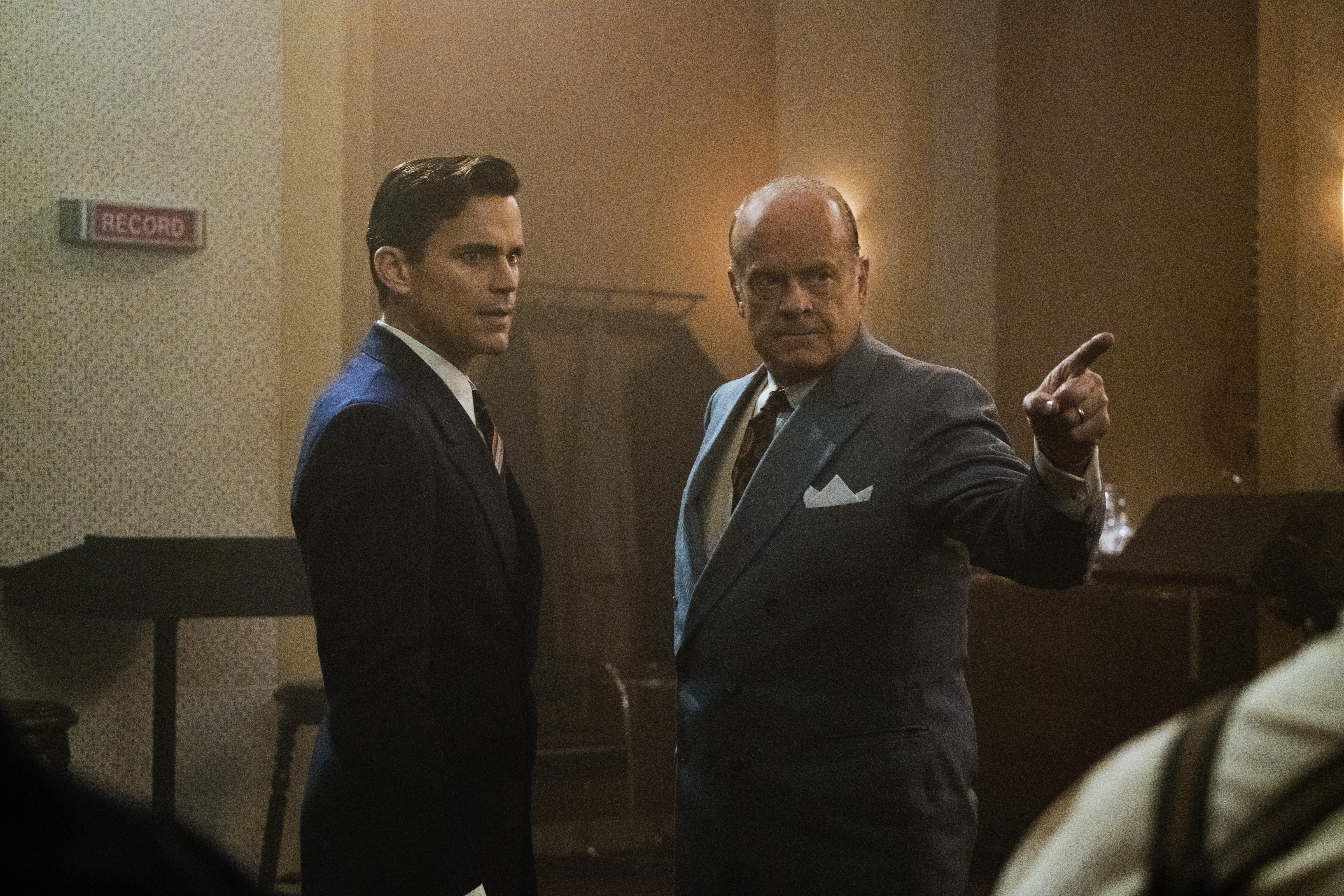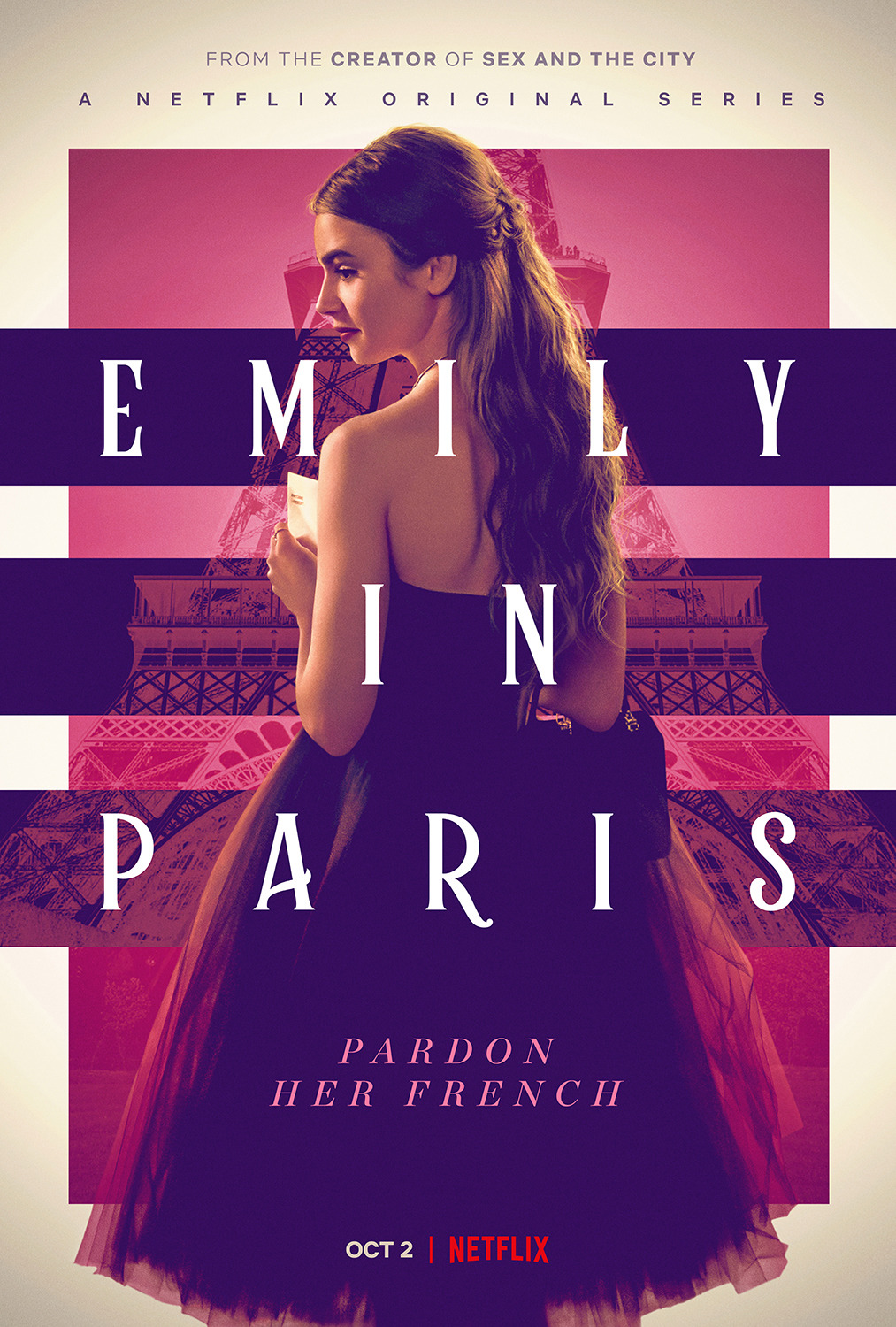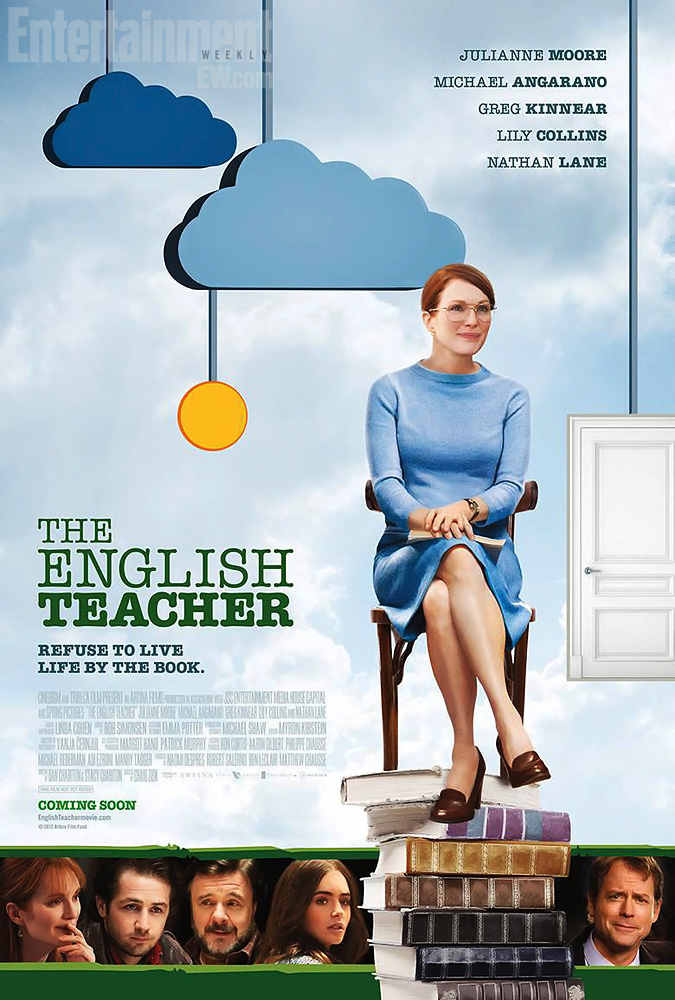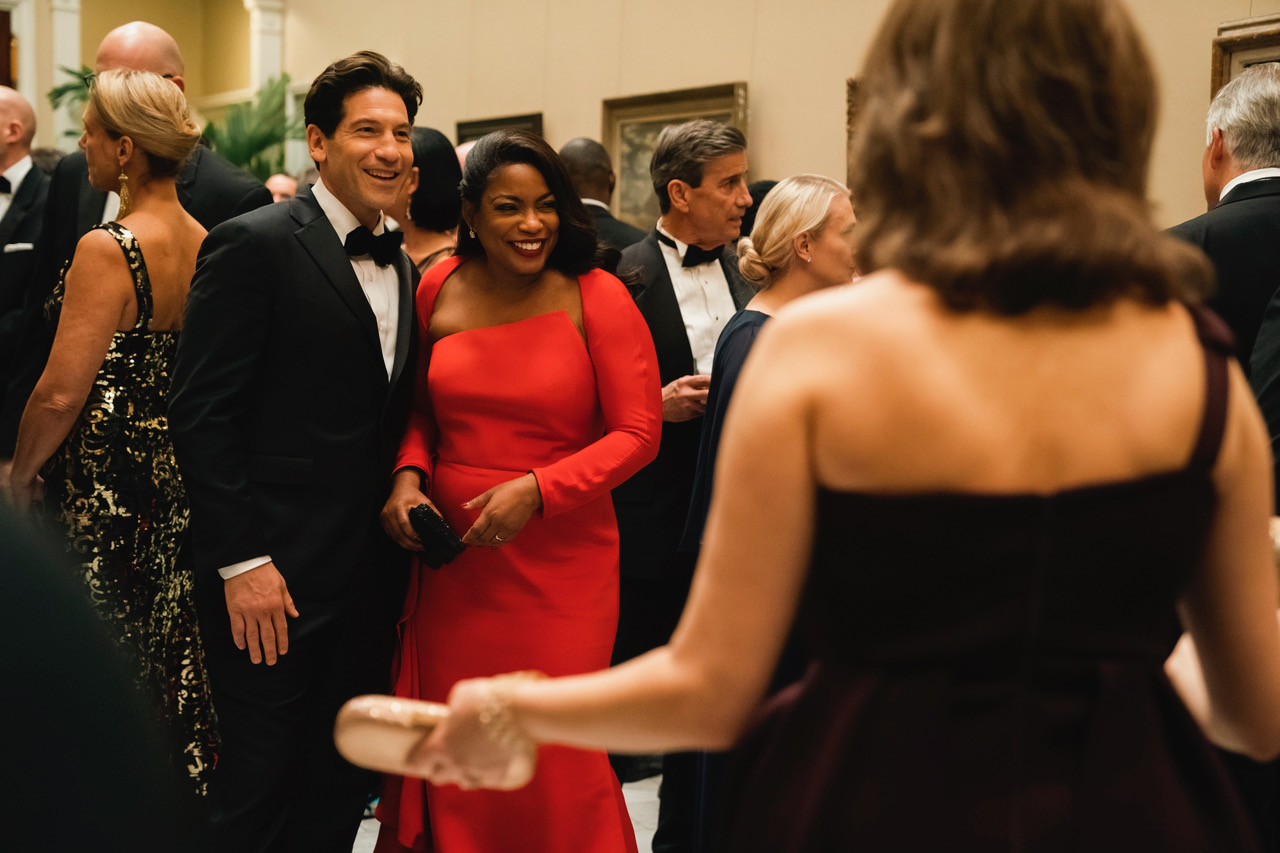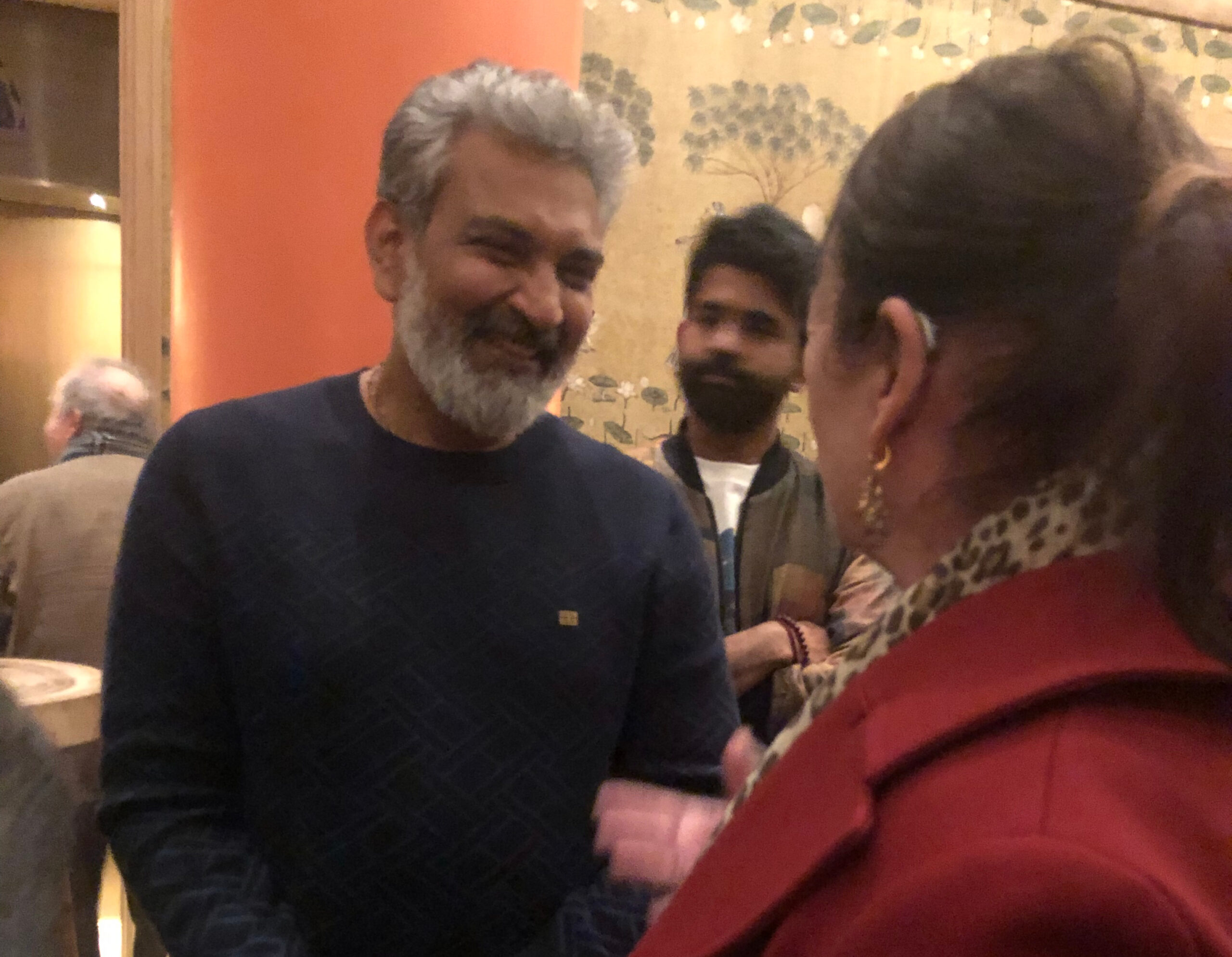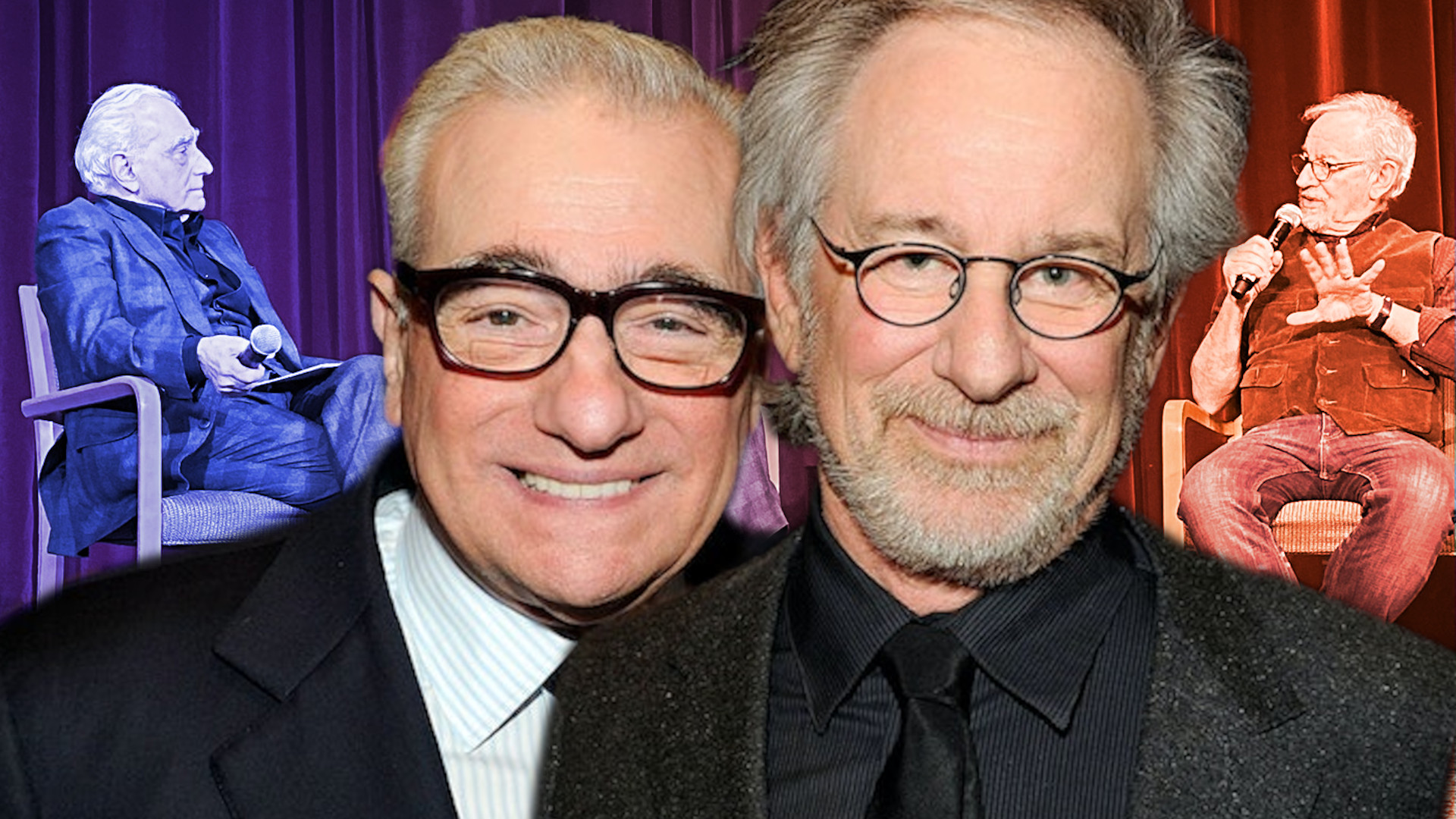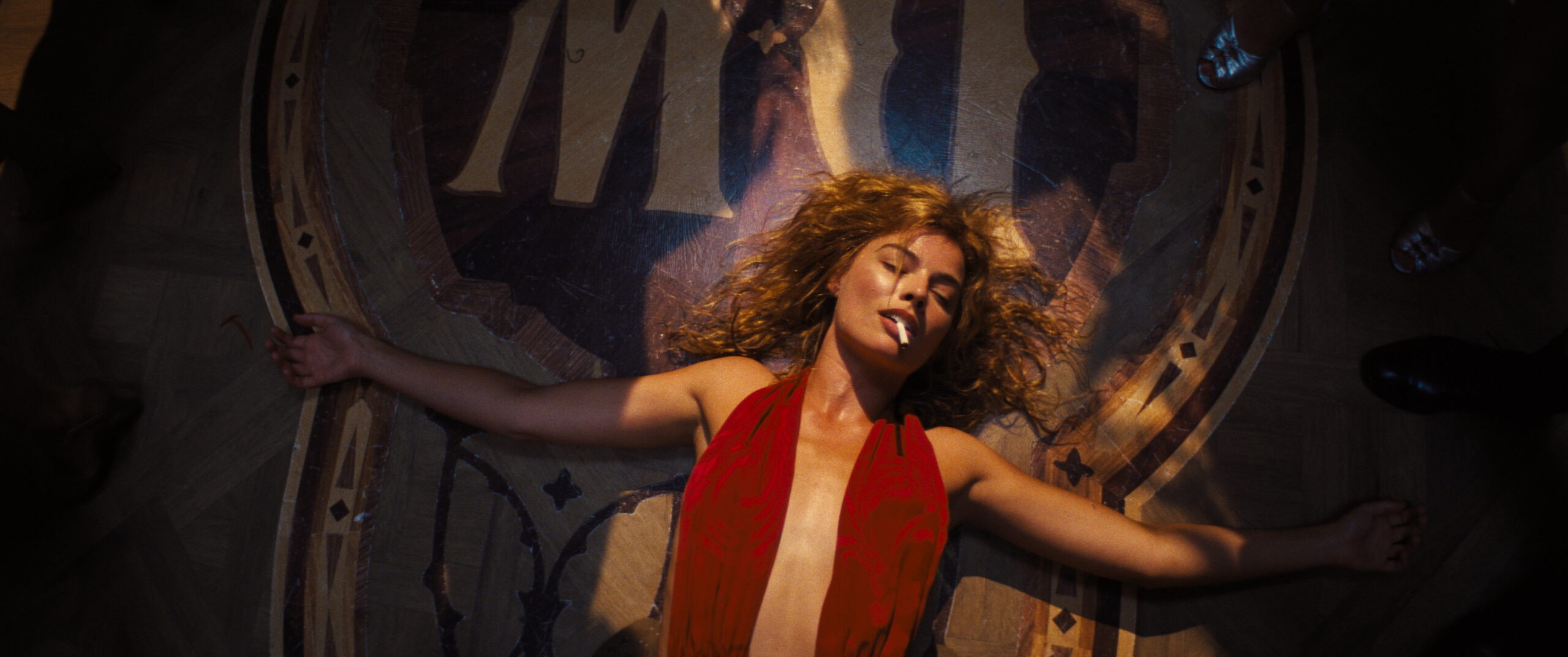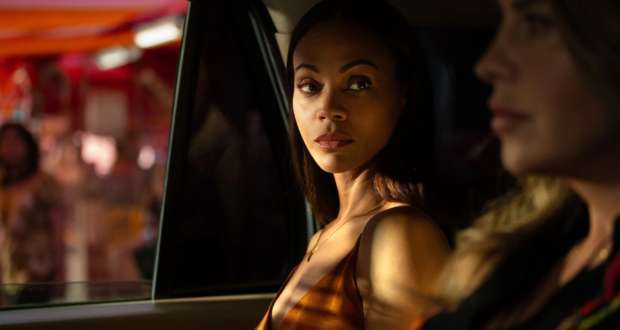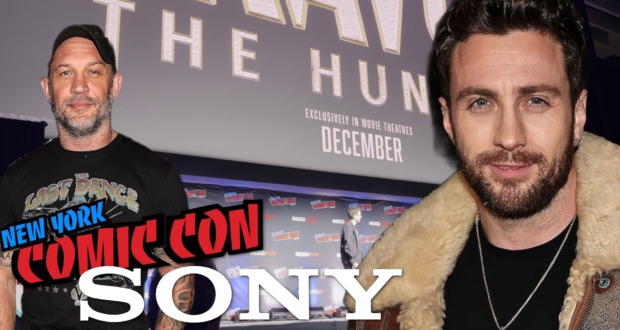Matt Bomer stars as hero Monroe Stahr, a gifted young movie executive in1930’s Hollywood, in the Amazon TV series “The Last Tycoon,” the latest adaption of F. Scott Fitzgerald’s unfinished novel. Billy Ray, the Oscar nominated screenwriter of “Captain Phillips,” is the creator and an executive producer of the show, as well as director of three of the nine episodes, all of which are now available and recommended for bingeing.
As played with old Hollywood glamour by Bomer (“American Horror Story,” “White Collar,” “Flight Plan”), Monroe cuts a charismatic but tragic figure in his snazzy pinstripe suits, fedoras and silk pajamas. Born with a defective heart, Stahr works in tinseltown’s pressure cooker atmosphere of wheeling and dealing, and is so obsessed with making movies that he literally thinks they are worth dying for.
Five-time Emmy winner Kelsey Krammer is equally prominent in the cast as Stahr’s hard-headed studio boss Pat Brady. Their relationship is a complicated one; Brady has paternal feelings towards Stahr but also envies him, both for his creative genius and the loyalty and love bestowed on him by his casts and crews. But mainly Brady has his eye on the bottom line, which as an artist is not always Stahr’s focus.
Rounding out the cast is Lily Collins, as Brady’s stubborn and precocious daughter Celia, who turns her back on college against her father’s wishes to become a movie producer. Dominique McElligott plays Stahr’s love interest Kathleen Moore, an impoverished young woman from Dublin who Monroe wants to mold into a movie star like he did his late wife, Minna Davis.
Ray, along with his fellow executive producer Chris Keyser, told journalists at a press event for “The Last Tycoon” at the Whitby Hotel in midtown Manhattan, that they envisioned the show as Amazon’s version of “Mad Men.” Like that show, this 1930’s Hollywood period piece is infused with social, political and pop cultural references, especially its commentary on women in the workplace.
“We are both big fans of ‘Mad Men,” said Ray of himself and Keyser, “and really studied how ‘Mad Men’ shined such a light on the plight of women in the 60’s and told that story in a way that I thought was so compelling that we wanted to be that good.”
He added, “We’re going to tell a story that Fitzgerald couldn’t have told cause he didn’t know a lot of the stuff we’re talking about He couldn’t have thought about women the same way. He couldn’t have thought about the underprivileged in America the same way. But it doesn’t mean it’s not from Fitzgerald. It just means we’re talking about Fitzgerald as he applies to 2017.”
And unlike Fitzgerald’s other novels, “The Last Tycoon” was unfinished; the author died halfway through writing the novel. Noted Keyser, “So it gave us a little bit of leeway to say, you know what? Even Fitzgerald didn’t exactly know what he was going to do with this.”
Following are highlights from interviews with Billy Ray and stars Matt Bomer, Lily Collins, Kelsey Grammar and Dominique McElligott:
Billy Ray on what drew him to adapting the book into a television series:
“When I first read the book I thought the conversations that he’s writing about in 30’s Hollywood are conversations that I’ve had a hundred times in my career because the basic power dynamic of Hollywood has never changed. That struggle between art versus commerce or passion versus profit, it’s exactly the conversations that people were having then because the fact is movies are the most expensive medium in the world… And I’m really interested in the idea that movies are a lie essentially that we tell ourselves about who we are. They were certainly a lie in the 1930’s in the midst of the Depression because they didn’t talk about the Depression. They talked about what America might be. That was necessary right? You needed something to go to. People had no money for anything else but they went to the movies.
Billy Ray on the production design by Patrizia von Brandenstein, costumes by Janie Bryant and cinematography by Danny Moder:
We felt very strongly that the show was about the power that the dream has on everybody in Hollywood. They’re all chasing something that is so elusive and so romantic and so intoxicating and then they’re also compelled by the pursuit of that dream. If you’re going to do that, you better shoot it in a dream like way. You better make sure that dream looks beautiful, so the bar that we set was that we were making nine movies this year. We didn’t think of them as episodes in a production sense. They had to be as good as movies. They had to be as good looking as movies. They had to give you that feeling that you have when you sit in a beautiful theater and you watch a $100 million movie, that it feels lush and it feels specific and it feels romantic and that every writing choice feels like the right choice. That’s a hard thing to do if you’re doing it in 65 days for the eight episodes exclusive of the pilot.
Billy Ray on shooting another season:
As soon as Amazon says to us that we get a second season we will start to break that season down. We have a very good idea of where that season’s going to go, just as we have a very good idea of where season five is going to go all the way up to the last episode of the last scene of the last episode, unless we find something better. We know what our North Star is, we are aiming towards it if the audience responds as we hope they will, we’ll dive right into season two… The sets are still there. There’s a thing called fold and hold where you break a set down and it goes off to this huge warehouse in California and it just sits there waiting to be given life again.
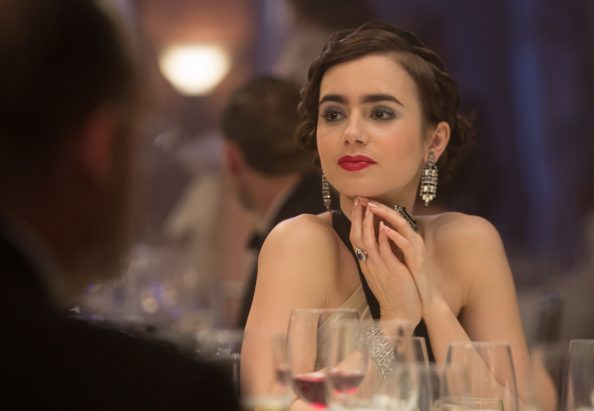
Tycoon, Lily Collins, courtesy of Amazon
Lily Collins on how she related to Celia and if she drew on her real-life experience as the daughter of an artist (pop musician Phil Collins is her father):
Someone just asked me about the relationship between Celia and I and the obviousness of my situation with my dad. It didn’t dawn on me until after I shot the pilot of that connection, because I honestly was so focused on Celia and her passion for her project that she’s trying to pitch. I didn’t even really think about the aspect of it but I definitely have had conversations with both my parents about the industry and about my choice to be in it and the pros and cons. I think, in this situation (as Celia), that we both are in the exact same industry whereas in my (situation) it’s a little different… But I grew up with a Mom who’s obsessed with old Hollywood and I grew up literally running around the hallways of Greystone Mansion because my Mom helped preserve it, so the fact that one day I would be there and filming there with the Brady household was very strange.
Kelsey on whether he disapproves like his character Pat Brady of his children going into show business:
I have conversations with my children, my two daughters especially who are acting… and I think my 15 1/2 wants to possibly go into (show business) but she maybe wants to direct instead. They’re all drawn to it. I had no advice against it. In our situation (in the show), the relationship between Pat and his daughter Celia, he has good cause to think you are asking for world of hurt, a horrible way to make a living, awful people around you, and he knows because he’s survived in it for as long as he has. And then he even thinks he’s one of the awful people. He would hate to see her get hurt, so I think his advice comes from a place where he thinks this just stinks… The idea of trying to coach your kids and things, I just look at my job as actually be able to kind of clean their wounds, lick ‘em up a little bit, push ‘em back out there, go get em kid!
Kelsey on what was key to finding his way into his role as movie mogul Pat Brady (Note: In the book the character is based on Louis B. Mayer but Ray created him as a character in the TV series played by Saul Rubinek. Billy Ray said at the junket that Brady is based on Columbia Pictures president Harry Cohn)):
The key for my guy was just, this one little blurb I read about Harry Cohn… He said he loved gangster movies because he fancied himself a little bit of a gangster. And so I though, “Oh, maybe I’ll make him talk a little bit like a gangster.’ It’s very subtle… Also he comes from a tough side of town. He comes from New York. He did beat people up and he survived and he made it out there and he’s a pretty direct son of a bitch if you cross him and a pretty great guy to work with if you don’t so…
Lily Collins on her beautiful clothes in the show:
Sadly I didn’t get to take them home.
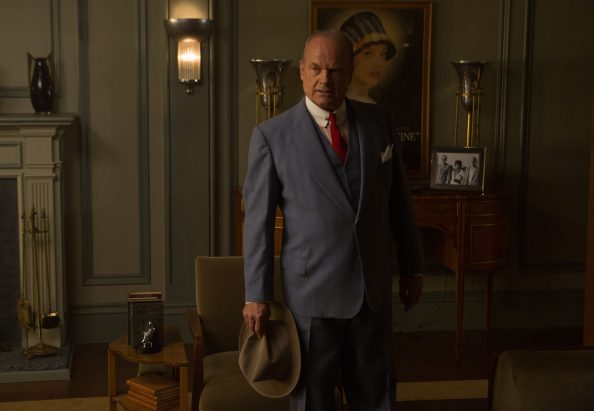
Tycoon_0450.CR2
Kelsey on whether he sees present day similarities to the industry as the way it’s portrayed in the show:
I don’t really think about it. The industry to me is something that I avoid. I’m successful within the context of the industry, but I’m not a prick and I’m not really interested in being one or in playing any kind of games. I like to tell a good story and be part of something that’s good. If it can’t be that so you just do your best and you leave. You move on. I like my life at home. I like my children. I want to do this and that so I don’t spend a lot of time on what might be the industry, whatever.
Dominique McElligott on how she related to her character Kathleen Moore:
The part that I love about her is the survival aspect of her story. Being in the Depression, the economic depression, coming from where she came and on a bus to Hollywood, and I just loved that idea of her getting off the bus in Pasadena and being greeted by this manager and having that experience and not being able to eat and having no money and going on this journey. It was a very different perspective and it’s a triumph over adversity and what she had to go through and I think I related to that aspect I guess just in terms of just being a struggling actor.
Matt Bomer on the social-political issues in the series and how it related to today’s climate:
It was really revelatory to me that as the show went on the social commentary became more and more appropriate to now. It could have taken place in 1936 or 2017 seamlessly. And I knew that was something that Billy and Chris were going to try to integrate into the show but it was still (a surprise) to me… There was so much going on in 1936 – the Great Depression, the Spanish Civil War, and you know, Germany on the move, and all those things, and there was a tension in the air and I felt like there is a palpable tension in the air here now that they were able to tap into.
Matt on entertainment as escape:
I’m not going to lie. I was watching Sharnado on lunch break. Straight up.
Dominique: When we were filming?
Matt: No, Just now, today. “Matt, we need you on set!” Michael Phelps is about to race a great white shark! I will be out when I’m ready! No, just today.
Dominique on the favorite part about existing in the world of the 1930’s:
I like the romantic aspects. I like the hand holding and the fact that we didn’t kiss on the first date aspect of it. I think that the building of the tension and the formality of intimacy with another person. The courting and the wooing and all of that that goes with it. The old school style dating world. I really loved that aspect of it I guess maybe because I’m old school myself. I love that. I think that’s really romance. On top of that obviously the costumes were just stunning.
Matt on filming in 65 days and if it felt stressful working at such a breakneck pace:
Oh my god yes! Not a breakneck pace because we had an incredible cinematographer, Danny Moder, who really took his time to light things and so it wasn’t like, “Now I’m here, rolling,” but there were days when it was kind of like gymnastics. I would start a scene with an emotional confession to Dominque, than I’d have a love scene, then I’d have a fight with Pat Brady, and then you’d have to repeat the whole thing the next day. But I think that’s part of what’s exciting about the medium of episodic is that you don’t get to luxuriate in anything for too long, so it’s perfect for we of the short attention span. Look, I’d love to do a David Fincher movie where I got to do 50 takes but you sort of have to sort of have to acclimate to the medium you’re working in.
Matt Bomer on whether he got to keep any of his beautifully tailored suits:
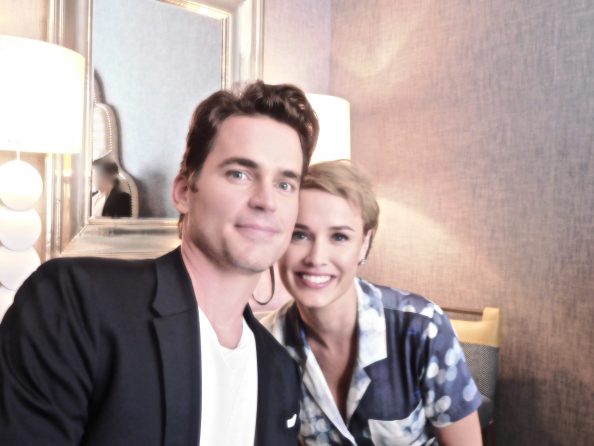 I loved wearing them. They’re very dense wool and I lost 15 pounds to play the role, maybe 20 lbs. They were tailored to my rib cage so I can still admire them from afar.
I loved wearing them. They’re very dense wool and I lost 15 pounds to play the role, maybe 20 lbs. They were tailored to my rib cage so I can still admire them from afar.
